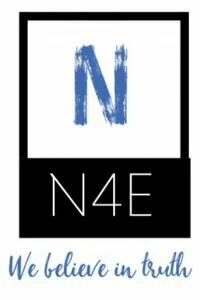The Centre’s initiative is seen as a step in direction of ending the dominance of platforms similar to Amazon and Flipkart, which have been accused by the minister of wielding monopoly energy and breaking the legislation.
Why has the federal government proposed open sourcing for e-commerce gamers and the way will it affect MNCs like Amazon?
The story to date: The Union authorities is engaged on establishing an Open Network for Digital Commerce (ONDC) to “democratise e-commerce” and “to provide alternatives to proprietary e-commerce sites”. Earlier this month, commerce minister Piyush Goyal held a gathering with an knowledgeable panel to debate the matter. The initiative is seen as a step in direction of ending the dominance of platforms similar to Amazon and Flipkart, which have been accused by the minister of wielding monopoly energy and breaking the legislation.
What Is The Open Network For Digital Commerce?
The authorities desires to vary the basic construction of the e-commerce market from the present “platform-centric model to an open-network model”. The ONDC mission is modelled across the Unified Payments Interface (UPI) mission that’s seen as a hit by many. The UPI mission permits individuals to ship or obtain cash regardless of the funds platforms on which they’re registered. Similarly, the federal government desires to make sure that patrons and sellers of products within the e-commerce market can transact whatever the platforms on which they’re registered. So beneath ONDC, a purchaser registered on Amazon, for instance, could instantly buy items from a vendor who sells on Flipkart.
Why Is The Government Pushing For It?
The authorities believes that ONDC will put an finish to the domination of the e-commerce market by a number of giant platforms. It says that the e-commerce market is at the moment damaged into “silos” operated and dominated by these platforms. Amazon and Flipkart, for example, have been accused of discriminating amongst sellers on their platforms and selling sure vendor entities through which they maintain oblique stakes. With an open community like ONDC that connects patrons and sellers throughout platforms, the federal government hopes to degree the enjoying subject and make platforms redundant. It is claimed that patrons may also be capable to entry sellers throughout platforms with out having to modify between a number of platforms.
What Do The Critics Say?
The purported advantages of an open community for digital commerce are removed from sure for the time being. For one, sellers are already free to listing their merchandise throughout varied e-commerce platforms even in as we speak’s platform-centric e-commerce mannequin. Buyers additionally routinely store throughout platforms. Then there are companies similar to price-comparison provided by varied personal web sites that bridge the knowledge hole and assist patrons make higher choices. So the domination of the e-commerce market by platforms similar to Amazon and Flipkart will not be as a consequence of any captive maintain that these platforms have over patrons and sellers. Further, the supposed “monopoly” that platforms are stated to get pleasure from could also be no totally different from the restricted monopoly that any enterprise has over its property. So critics similar to columnist Andy Mukherjee have really characterised the ONDC as a “solution searching for a problem”.
What Lies Ahead?
The capability of the federal government’s technocrats to provide you with an alternative choice to e-commerce platforms that may work seamlessly shall be examined within the coming months. It additionally stays to be seen if and the way the federal government’s open community will listing merchandise provided by varied sellers. Competition typically pushes e-commerce platforms to prominently listing merchandise which can be probably to catch the flamboyant of patrons. Their on-boarding and itemizing of sellers can be closely influenced by the flexibility of sellers to fulfil buyer orders. In reality, platforms could make investments cash to construct unique on-boarding and itemizing processes. If the federal government’s open community guidelines forestall platforms from benefitting from such investments, they might stop to make them anymore. This will ultimately have an effect on the standard of companies accessible to customers.











